Any Questions?
The 8 Aged Care Standards: Understanding the Pillars of Quality Aged Care
Choosing an aged care service, whether for yourself or a family member, is not an easy task. Not only does the process involve numerous decisions but assessing the quality of available options can be challenging. To improve the quality of aged care in Australia and simplify the process for older Australians to find the right aged care service, the Australian Government has established eight Aged Care Quality Standards.
This blog presents an overview of the eight quality standards of aged care, explaining what they are and how they are measured. It aims to provide readers with a comprehensive understanding of the criteria used to evaluate aged care services.
What are the Aged Care Quality Standards?
The Aged Care Quality Standards are guidelines that outline what constitutes quality care, with an emphasis on the fundamental rights of individuals to be treated with dignity and respect within the aged care system.
Applicable to all aged care services that receive funding from the Australian Government, the Aged Care Quality Standards outline the expected outcomes for elderly individuals receiving such services. They are designed to guarantee that elderly Australians receive aged care that is safe, effective, and of high quality, regardless of the setting in which it is provided.

What is the goal of the Aged Care Quality Standards?
The Aged Care Quality Standards aim to guarantee top-quality care for older Australians. These eight quality standards set by the Australian Government outline what excellent aged care should entail. They are mandatory for all government-funded aged care providers and are assessed by the Aged Care Quality and Safety Commission. Ultimately, these quality standards aim to enhance the quality of aged care facilities and make it easier to compare the performance of different aged care providers.
The 8 Quality Standards of Aged Care
The eight Quality Standards for aged care services in Australia, as outlined by the Australian Government's Aged Care Quality Standards, are:
Standard 1: Consumer Dignity & Choice
Standard 1 serves as the foundation of the 7 essential principles that emphasise the value of an individual’s identity and independence. These principles allow consumers to act independently, make their own choices, and participate in the community, which are essential in promoting social inclusion, health care, and one’s overall well-being.
What this means for you
I am treated with dignity and respect, and can maintain my identity. I can make informed choices about my care and services, and live the life I choose.
Standard 2: Assessment & Planning
Standard 2 extends the principles established in Standard 1 and incorporates requirements for organisations to collaborate with consumers. This standard explains how the aged care and services planned should fulfil every consumer's needs, goals, and preferences to enhance their health and overall wellness. Keep in mind that even if a consumer faces challenges with their health or abilities, they still have dreams to pursue, important roles to fulfil, and a desire to live their life to the fullest.
What this means for you
I actively participate in ongoing assessment and planning to ensure I receive the necessary care and services for my health and well-being.
Standard 3: Personal Care & Clinical Care
In this standard, both the consumers and the community expect safe, efficient, and high-quality provision of personal and clinical care. As outlined in the Quality of Care Principles 2014, Standard 3 is relevant to all services providing personal and clinical care.
Personal and clinical care and services can include:
- Overseeing or assisting with bathing, showering, personal hygiene, and dressing
- Offering personal mobility aids and communication assistance for consumers with hearing, sight, or speech impairments
- Nursing services, including catheter care and wound management
- Services focused on restoring or enhancing a consumer's independence in daily living activities
- Specialised therapy services for consumers with cognitive impairment
What this means for you
I receive tailored personal and/or clinical care that is safe and suitable for my needs.
Standard 4: Services & Supports for Daily Living
Daily living services and supports, like food, household assistance, transportation, and social activities, aid consumers in pursuing meaningful goals and managing day-to-day life despite health challenges. These services and supports for daily living cover a wide range of options to help consumers live independently and enjoy life to the fullest. This may include:
- domestic assistance, like cleaning, laundry, gardening, and home maintenance
- food-related services, covering meals, dietary advice, delivery, and preparation
- services that promote and assist consumers in engaging in social activities of interest, including community involvement
What this means for you
I receive the essential services and support for daily living that are essential for my health and well-being and that enables me to pursue my goals.
Standard 5: Service Environment
Standard 5 relates to the physical environment offered by organisations for residential care, respite care, and day therapy centres, which aim to support consumers' quality of life, independence, and enjoyment.
This Standard covers how an organisation's service environment:
- promotes consumers' participation in the community and social interactions
- minimises confusion by providing clear navigation and wayfinding
- encourages consumers to personalise their living spaces
- welcomes consumers, family, and visitors, offering culturally safe interaction spaces
- maintains safety, cleanliness, and upkeep of the environment
- ensures easy mobility for consumers, including access to outdoor areas
- implements safety measures without dominating the environment
- adheres to security best practices to safeguard consumers when warranted
What this means for you
I feel a sense of belonging and safety and I find comfort within the organisation's service environment.
Standard 6: Feedback & Complaints
In this standard, organisations are mandated to establish a complaint resolution system that guarantees consumer feedback is accessible, confidential, prompt, and fair. Standard 6 covers essential components of an efficient complaints management system that:
- motivates consumers to provide both positive and negative feedback to the organisation regarding their aged care services
- addresses formal and informal feedback and complaints from consumers and others, whether conveyed in writing or verbally
- facilitates continuous improvement by suggesting ways to improve aged care and services
- resolves issues for consumers and others efficiently
Organisations should practice open disclosure, involving honest communication and transparent processes, including admitting mistakes and offering apologies when necessary. More importantly, consumers should feel at ease providing feedback, especially those facing barriers like cognitive, communication, language, or cultural differences, or sensitive issues.
What this means for you
I feel safe, encouraged and supported to provide feedback and voice any concerns. I am engaged in the process of addressing my feedback and complaints to guarantee that the appropriate action is taken.
Standard 7: Human Resources
This Standard states that organisations are required to maintain a skilled and qualified workforce capable of delivering and overseeing safe, respectful, and high-quality care and services in accordance with the Quality Standards.
Here are four primary concepts included in this aged care quality standard:
• The sufficiency of the workforce
Organisations offering care must have a skilled workforce to meet consumer needs. They are responsible for using the Australian government funding to maintain adequate staffing levels and the necessary skill mix for quality care, including appointing infection prevention control (IPC) leads.
• The attributes, attitude and performance of the workforce
The workforce must possess the appropriate skills, qualifications, and knowledge to perform their duties effectively and foster positive relationships with consumers. Emphasising consumer-centred care promotes meaningful interactions to identify strengths and goals.
• Organisational support for the workforce
Organisations should value their diverse workforce and provide support to guarantee compliance with Quality Standards. This support includes granting staff the necessary time and resources to deliver quality care daily and safeguard their health during outbreaks. It also involves providing ongoing training, including mandatory sessions on outbreak management, infection control, and prevention for all staff, including IPC leads.
• Assessment, monitoring and review
To meet this Standard, organisations must consistently evaluate and oversee their workforce using an efficient human resources system. This involves assessing workforce composition, suitability, and performance, which is crucial for delivering safe, respectful, and quality care aligned with consumers' needs and preferences.
What this means for you
I receive timely, high-quality care and services from knowledgeable, capable, and compassionate individuals when needed.
Standard 8: Organisational Governance
The Quality Standard of Organisational Governance requires that the governing body of an organisation is accountable for providing and delivering safe and high-quality aged care and services that adhere to the set standards. Organisations are expected to have systems in place to assess, monitor, and enhance the quality and safety of their services in order to provide a positive experience for consumers. In addition, they should be prepared to manage emergencies, disasters, and maintain effective infection prevention and control procedures.
What this means for you
I trust the organisation's efficient management and actively contribute as a partner in enhancing the delivery of care and services.
Takeaway
The Aged Care Quality Standards are vital in safeguarding the well-being and dignity of older Australians. By establishing clear expectations and guidelines, these quality standards guarantee that aged care providers deliver services of the highest quality and that older adults have the opportunity to voice their feedback and concerns, making sure their needs are heard and addressed.
At Focus Connect, we value individual needs that's why we help residents live a quality and independent life in their own home and community. We make sure that our services align with each of the eight Quality Standards of Aged Care in order to provide you with peace of mind knowing that your loved ones are receiving the best possible care and support. Get in touch with us today to know more about our services.
Related Articles

FOCUS Connect, a registered not-for-profit charity, provides practical assistance and support services to disadvantaged and marginalised individuals. As a My Aged Care provider, we offer Support at Home and Commonwealth Home Support Programme services across South West and Northern Sydney. Additionally, we are a leading provider of community services to multicultural and culturally and linguistically diverse (CALD) populations across South West Sydney.
Need Support or Know Someone Who Does?
If you need support, call us at 02 4627 1188 or contact us via our online enquiry form, and we will get back to you shortly to discuss your needs and how we can assist you. If you know someone who could benefit from our services, refer them to FOCUS Connect to help them receive the support they need and deserve.














